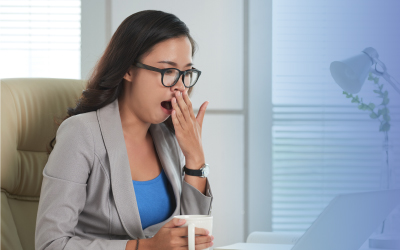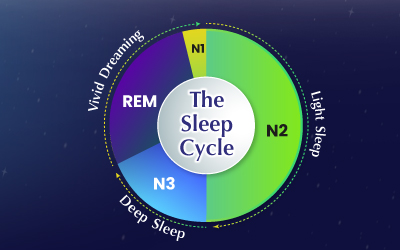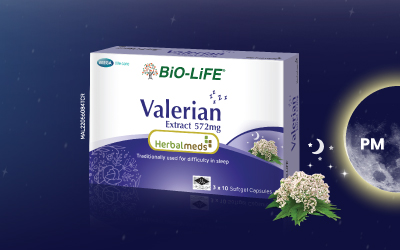
Quality vs Quantity of Sleep
20 May, 2024
Do you find it hard to wake up in the morning? Do you feel sluggish and tired despite hours and hours of sleep? Do you find that the only thing keeping you going throughout the day is those cups of coffee? You may need to start taking note of the quality of your sleep.

What is Sleep Quality?
Determining sleep quantity is straightforward, as it just involves checking if you are getting the recommended 7-9 hours of sleep per night, depending on your age. In contrast, measuring sleep quality can be more complicated and subjective. Generally, good sleep quality is characterized by the following factors:

Indicators of Sleep Quality
| Indicators | Description | Indication for good sleep |
| Sleep Onset Latency | The time taken and the effort required to fall asleep. | Fall asleep within 30 minutes of going to bed |
| Sleep Continuity | The ability to stay asleep once you fall asleep, as high-quality sleep is continuous. Disrupted sleep at night is associated with feeling tired when you wake up the next day. | Not waking at all or once |
| Sleep Efficiency | Time spent sleeping versus time spent trying to sleep. | 85 percent or more |
| Sleep Timing | The body’s circadian rhythm dictates our internal clock and makes us feel alert during the day and sleepy at night. High-quality sleep is in line with the body’s circadian rhythms. | Sleeping and waking at the same time every day |
| Alertness | Your body’s ability to stay awake and functional with full cognitive and physical capacity throughout the day. | Feel alert throughout the day |
Sleep Cycle & Sleep Quality
A consistent sleep cycle is essential and full sleep cycle is important to ensure good quality sleep. During sleep, the body experiences two types of sleep: non-rapid eye movement (NREM) sleep and rapid eye movement (REM) sleep. These two types of sleep can be further categorized into four stages.

Stage 1: This initial stage occurs when we begin to fall asleep. Sleep is very light during this period as the body begins to relax. It usually occurs between the first 1 to 7 minutes.
Stage 2: The body temperature drops during this stage, and the breathing and heart rate slow down. These are the signs before entering deep sleep. It usually occurs for 10 to 25 minutes.
Stage 3: At this stage, we are in our deepest sleep. Our bodily muscles are fully relaxed, and our heartbeat and breathing rates are at their slowest. It usually occurs for 20 to 40 minutes.
Stage 4: During REM sleep, breathing and heart rate increase with rapid eyes movement. This stage can last between 10 to 60 minutes.
Ways to Improve Sleep Quality?
- Avoid cigarettes, alcohol, and caffeine in the hours before sleep.
- Sleep in a dark, quiet, and comfortable environment.
- Avoid using electronic devices before going to bed.
- Maintain a consistent bedtime.
Introducing Herbalmeds Valerian – Better Sleep Quality
Valerian is a medicinal plant that has been used for over a thousand years as a non-addictive sleep aid to promote sleep without causing side effects. Herbalmeds Valerian provides the highest strength valerian root extract available in the market with a therapeutic dose of 572mg per capsule, naturally helps to:
- Reduce the time required to fall asleep.
- Reduce brain excitability by inducing GABA activity to provide a natural mild sedative effect to promote sleep.
- Improve sleep quality for a refreshed morning the next day.
🌙 Take 30 minutes to 1 hour before sleep.
Sleep quality and sleep quantity: Which is more important? The answer is both are equally important! Not enough sleep could make you feel tired and lethargic, and poor-quality sleep could also leave you tired and fatigued, and affect your day. Thus, we must focus on quantity and quality for a good night’s sleep, as sleep quantity and quality are inexplicably linked. To sleep as well as possible, you need to optimize both the amount of time you sleep and the things that impact the quality of your sleep.
Shop Now
back






